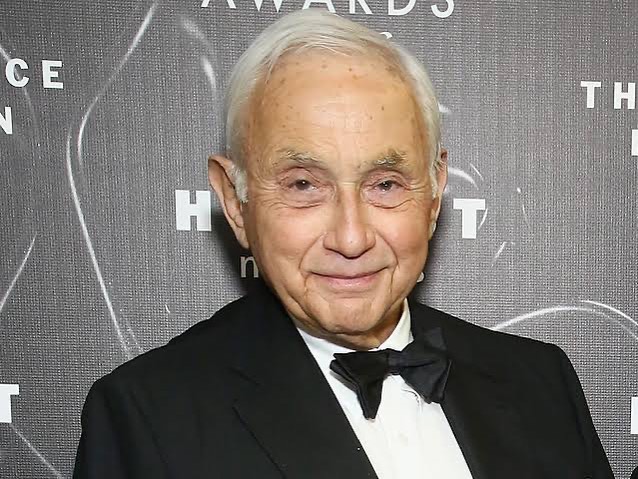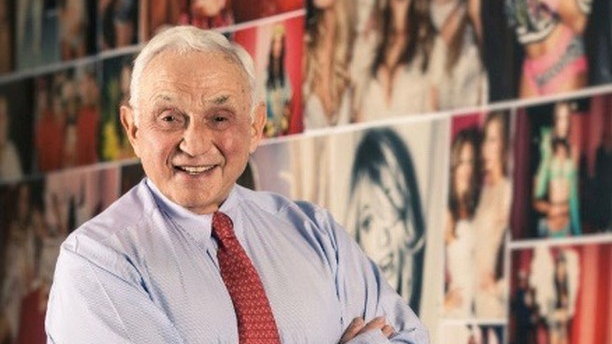The Shadow Over Victoria's Secret: Les Wexner's Dark Alliance
How could the man who built an empire of iconic brands like Victoria's Secret and Bath & Body Works become inextricably linked to one of the most heinous crimes of our time? Les Wexner, once America's quintessential retail titan and Ohio's richest man with a $6 billion fortune, saw his meticulously crafted legacy crumble under the weight of his decades-long, disturbing association with convicted sex offender Jeffrey Epstein. This is the story of ambition, unprecedented wealth, and a shocking fall from grace.
Who Is Les Wexner—and What Built His Fortune?
Born in Dayton, Ohio, in 1937, Leslie H. Wexner launched his retail empire with a modest $5,000 loan from his aunt, opening The Limited in 1963 in Columbus. Under his astute leadership, the company rapidly evolved into L Brands—a conglomerate housing iconic names like Victoria’s Secret, Pink, and Bath & Body Works. A pivotal 1969 IPO provided the crucial capital for aggressive expansion throughout the 1980s and 1990s. Wexner's strategic acumen earned him recognition as one of the longest-serving Fortune 500 CEOs, and he was named one of Harvard Business Review’s top global performers in 2015, solidifying his once-unassailable reputation in the business world.
Net Worth & Standing in Ohio
As of May 2024, Les Wexner remains the richest person in Ohio with an estimated net worth of $6 billion. Despite stepping back from L Brands in 2020 amid lingering questions over his ties to Jeffrey Epstein and the mystery of Wexner’s own missing millions linked to Epstein’s network, his immense wealth endures—fueled by substantial real estate holdings, including a $47 million New Albany estate, and his broad corporate assets, standing as a testament to the lasting value of the companies he built.
How Did He Become the Richest Man in Ohio?
Wexner’s accumulation of wealth stems from a potent combination of retail innovation, market dominance, and strategic real estate development. He didn't just open stores; he fundamentally shaped America’s mall culture by creating engaging retail experiences and forging key partnerships. His collaboration with developer A. Alfred Taubman, a pioneer in mall design who focused on creating attractive, efficient layouts to maximize shopper traffic and tenant exposure, allowed Wexner's brands to thrive within these new retail cathedrals.
Wexner was known for his "super specialist" approach, deeply understanding the women's apparel business. He revolutionized the lingerie market by transforming Victoria's Secret from a male-oriented fantasy into a brand explicitly targeting and empowering female shoppers, focusing on comfortable and stylish intimate apparel for women themselves. He also pioneered the integration of design with quick production, responding swiftly to consumer demand. Over time, the consistent success of essential brands like Victoria’s Secret and Bath & Body Works solidified L Brands as a market titan. His calculated IPOs and continuous diversification of product lines across beauty and apparel further amplified his wealth, allowing for relentless expansion and market capture.
Related: A Brave Voice That Echoes On: Honoring Virginia Giuffre’s Legacy
Scandal with Jeffrey Epstein: Judgment or Negligence?
The relationship between Les Wexner and Jeffrey Epstein casts the longest shadow over Wexner's legacy. From 1987 to 2007, Wexner controversially appointed Jeffrey Epstein as his financial advisor, granting him an extraordinary level of control, including power of attorney and trustee responsibilities over his personal finances and foundations. This extensive authority allowed Epstein to allegedly misuse trust and abscond with more than $46 million of Wexner's funds.
More distressingly, Epstein allegedly leveraged his proximity and association with Wexner and Victoria's Secret to gain access to young women, often under the guise of modeling invitations for the prestigious lingerie brand. While Wexner maintains he confronted Epstein once in 2007 upon discovering the financial misappropriations and denies any deeper awareness of Epstein's criminal conduct, mounting evidence and multiple testimonies suggest repeated warnings about Epstein's behavior were either overlooked or ignored. For instance, reports surfaced that Wexner was made aware of Epstein posing as a Victoria's Secret scout and attempting to undress women.
This close and prolonged association has led to significant backlash. Shareholders filed legal claims demanding accountability, alleging Wexner breached fiduciary duties by enabling a toxic corporate culture and failing in his oversight responsibilities, leading to reputational and financial harm. The critical scrutiny was further intensified by the 2022 Hulu documentary Victoria’s Secret: Angels and Demons, which delved into the brand's problematic culture and the Epstein connection.

Les Wexner
Did He Ever Face Consequences?
In February 2020, amid soaring public backlash and mounting legal pressures, Wexner officially resigned as CEO of L Brands, transitioning to chairman emeritus, a clear step back from direct leadership. Subsequently, shareholders filed derivative lawsuits alleging that L Brands' officers and directors breached their fiduciary duties by failing to investigate Wexner's ties with Epstein and ignoring a pervasive culture of sexual misconduct and misogyny within the company. These lawsuits sought not only financial accountability but also significant corporate governance reforms.
While Wexner has consistently stated publicly that he was never aware of Epstein’s criminal conduct and that he himself was a victim of Epstein's fraud, his reputation remains deeply tarnished. The legal actions, while often settled out of court, signify a public and shareholder demand for greater accountability for the company he built. In July 2021, L Brands (now Bath & Body Works and Victoria's Secret & Co.) reached a $90 million settlement in shareholder derivative litigation, which included provisions for corporate governance reforms, such as prohibiting the use of non-disclosure agreements (NDAs) for harassment claims and revamping internal sexual harassment policies.
Related: How Yang Tengbo Became Prince Andrew’s Trusted Confidant Amid Espionage Allegations
Philanthropy vs. Public Perception
Despite the controversy, Wexner has continued his extensive philanthropic efforts. He has been a monumental benefactor to The Ohio State University, donating over $200 million and chairing the Wexner Foundation, which focuses on Jewish leadership development and cultural initiatives, notably including the Wexner Center for the Arts. This continued giving, while substantial, is often viewed through a complicated lens, with some perceiving it as genuine benevolence and others as an attempt to restore a damaged public image.
Beyond philanthropy, he maintains stewardship over vast tracts of legacy real estate in New Albany, Ohio, the community he meticulously planned and developed. His ongoing influence is evident in the continued growth of the New Albany Business Park, a major economic engine, and his role in shaping community development through entities like the New Albany Company, co-founded with Jack Kessler.
What Lies Ahead for the Retail Icon?
Les Wexner continues to hold immense wealth and influence, particularly in his home state of Ohio, but his public role as a celebrated retail visionary has been irrevocably diminished. Ongoing lawsuits, cultural critique, and the lingering questions surrounding his relationship with Epstein make his legacy increasingly complex and contested. While the companies he founded, particularly Bath & Body Works, continue to be profitable, they now operate in a post-Wexner world—one partly shaped by the ripple effects of his past associations and the profound errors in judgment he failed to address.
Conclusion
Les Wexner’s journey—from pioneering mall merchant to billionaire philanthropist—was once the embodiment of the American dream. However, his prolonged, high-stakes connections to Jeffrey Epstein have cast an indelible shadow, forcing a re-evaluation of his entire career and inviting intense public debate over accountability at the highest levels of business. This profound shift in public perception and corporate scrutiny directly paved the way for the dramatic, necessary change in ownership that saw Victoria's Secret finally disentangle itself from his control. Today, Wexner stands as a cautionary figure: a man whose remarkable achievements are forever marred by the company he kept, the power he wielded, and the critical blind spots he seemingly failed to address, fundamentally rewriting the narrative of a retail empire.
Related: Is Formula 1 Finally Cracking Down on Staff Misconduct?














